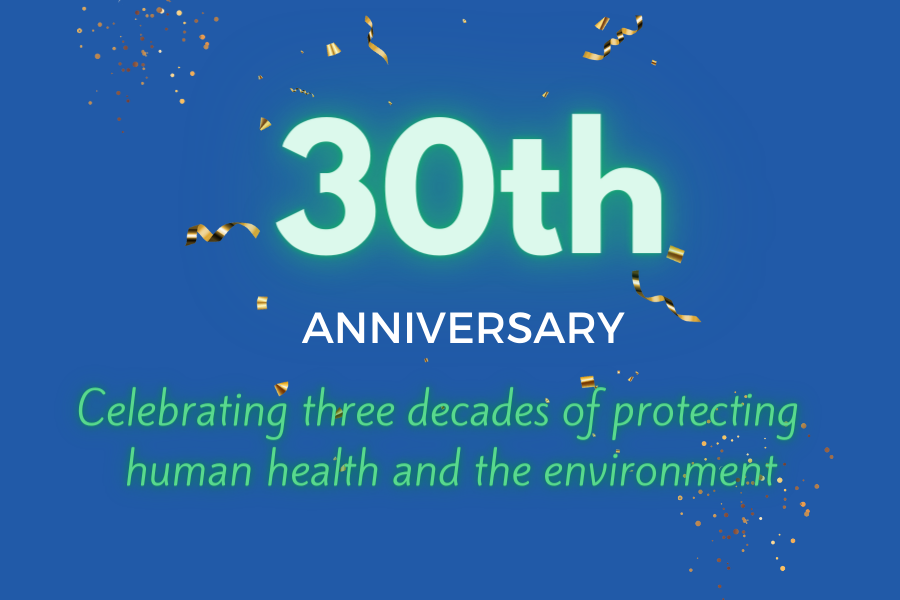
Celebrating three decades of improving environmental and public health
From 1990-1991, the state of Washington directed local governments to ensure proper management of hazardous materials and waste. In turn, King County created the Hazardous Waste Management Program (Haz Waste Program).
In the 30 years since, the Haz Waste Program has strived to protect and enhance public health and environmental quality in King County by reducing threats posed by the production, use, storage, and disposal of hazardous materials.
Many frequently-used household products like cleaning supplies, motor oil, varnish, oil-based paints, or pesticides have toxic, corrosive, flammable, or reactive ingredients. These products are considered “hazardous materials” because their ingredients can threaten our environment and our health. Once used, proper disposal of these materials and their hazardous waste is critical in protecting King County's residents and environment.
A single house or business typically produces only a small amount of hazardous waste in a year. Yet, across the 2.1 million residents and more than 60,000 small businesses of King County, the total amount of hazardous waste produced can lead to larger problems for public health and the environment. That’s where the Haz Waste Program comes in.
The Haz Waste Program’s accomplishments to date are inspiring:
- In 2020, the Haz Waste Program kept three million pounds of hazardous waste out of the environment.
- The Haz Waste Business Services Program continues to earn national recognition for its work helping dry cleaning companies switch to more environmentally-friendly cleaning practices.
- Throughout 2020, the Haz Waste Program worked with partners to collect 114,500 pounds of hazardous waste at partner-sponsored collection events.
- The Haz Waste Program supplied $432,535 in grants to city and tribal partners for hazardous waste materials outreach and collection events in 2020.
- Haz Waste Program staff discovered new and effective strategies for delivering services during the COVID-19 pandemic and were able to offer technical assistance to more than 2,000 people.
To celebrate the program’s 30th anniversary, current staff shared what inspires them about the work they do as part of the Haz Waste Program.
Clyde Parker, Environmental Field Supervisor
“I am inspired by the work we do in collection services. Every item dropped off at our collection sites is properly handled and sorted into a hazard category before disposal.”
Emmanuel Rivera, Health & Environmental Investigator IV
“I am inspired by our racial equity work and how we have added equity and social justice into our work plans and daily activities. I am also proud of the work we are doing to raise awareness about the potential harm from cleaning products and mixing products. Our efforts to inform communities on how to choose safer products by reading labels, looking for signal words, and using third-party certified products is improving the health and safety of our residents and business owners.”
Jeff Gaisford, Recycling & Environmental Services Manager
“I am inspired by the knowledge, skills, and collaboration of our Program staff. I am most proud of the Secure Medicine Return project we helped create in 2014 with the Board of Health. King County was only the second jurisdiction in the country to establish a product stewardship medicine take back program, and the State of Washington followed by passing legislation for a statewide program based on the King County program.”
As we look towards the next 30 years, the Haz Waste Program staff recognize that race and ethnicity are still determinants of hazardous materials exposure in King County and around the nation. To confront disparities that exist, the Haz Waste Program is committed to leading with racial equity and plans to continue to address root causes of inequities and make even greater impacts in—and with—the community we serve.